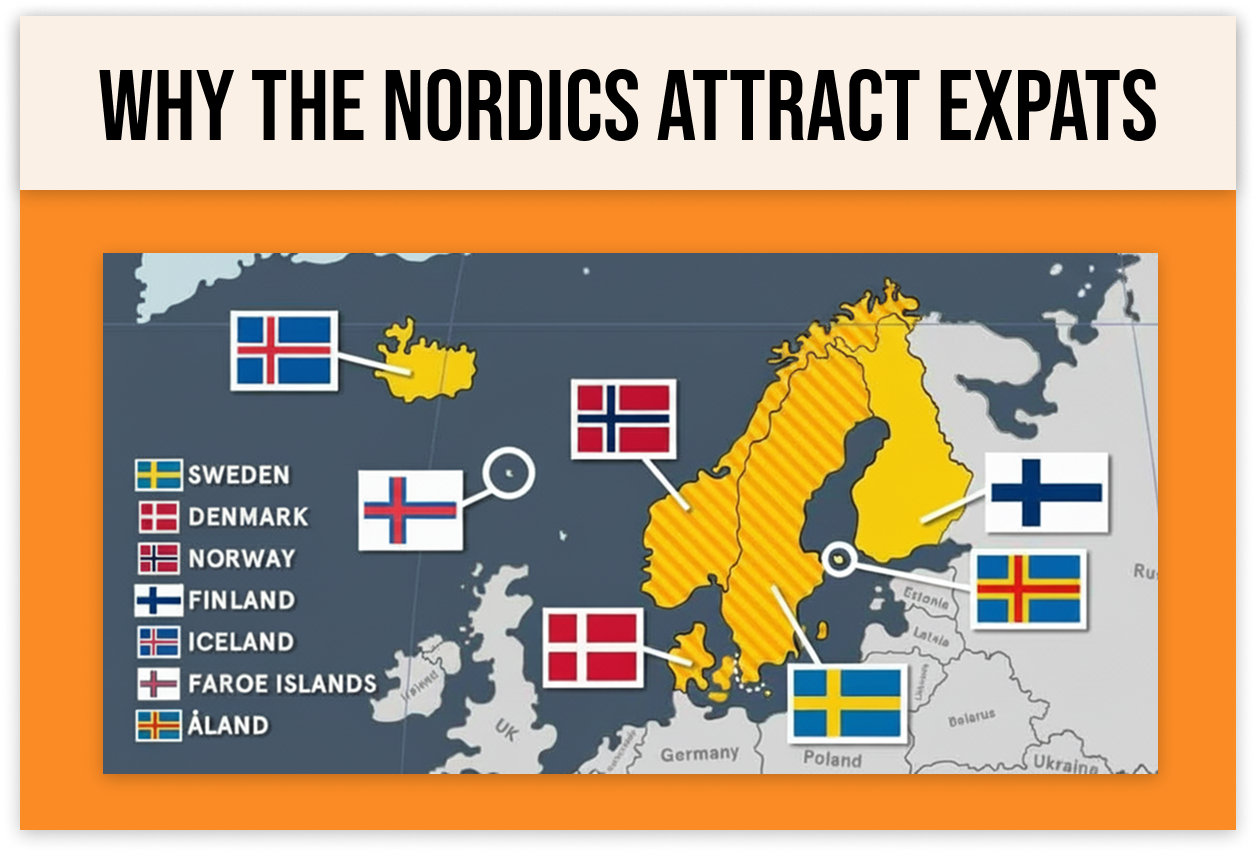Why the Nordic Countries Attract (and Challenge) Expats
Start Here Before You Go Nordic.
What makes people pack up their lives and move to some of the coldest, darkest countries on earth?
The Nordic countries sit at the top of global rankings for happiness, safety, and welfare systems.
From the outside, they look like a model of order and equality. For many expats, life here delivers on that promise.
But there is another side.
High taxes, long winters, and a culture that can feel reserved, leave some wondering if the trade-off was worth it.
That tension between dream and reality is what we will look at today.
What makes the Nordics attractive to outsiders
The everyday challenges people face
How to know if life here is a good fit
Let’s begin by clearing up what “the Nordics” actually means.
Nordics ≠ Scandinavia
Many people use the words Nordic and Scandinavia as if they mean the same thing.
They do not.
Scandinavia refers only to Denmark, Norway, and Sweden. The Nordic countries include all of those plus Finland and Iceland. They also cover three autonomous regions.
The Nordic countries:
Denmark
Norway
Sweden
Finland
Iceland
Autonomous regions:
Greenland (part of Denmark)
Faroe Islands (part of Denmark)
Åland (part of Finland)
Why does this matter?
Because life in Finland is one thing, and life in Iceland is another. The rules, the taxes, and even the everyday routines aren’t the same. Choosing the right word just makes it easier to talk about the Nordics without mixing them all together.
Takeaway: Scandinavia is three countries. The Nordics are five countries plus three self-governing regions.
With that cleared up, let’s look at why so many people are drawn to the region in the first place.



